Legacy Stories
Nick Miniati
Nick Miniati grew up in Attleboro, Massachusetts and possessed an endearing and charming personality from a young age. He played hockey for the Pawtucket Pirates, the Greater Providence Youth Hockey Association, and Attleboro High School. Nick suffered two diagnosed concussions on the ice and later revealed he had his “bell rung” on numerous occasions. After graduating from high school in 2016, he graduated trade school and earned his HVAC/Refrigeration certification. In his early 20’s, Nick had difficulty sleeping, suffered from headaches, and showed signs of depression. On September 7, 2020, Nick took his life at age 22. His brain was later studied at the VA-BU-CLF Brain Bank. The Miniati family is sharing Nick’s story to spotlight the connection between brain trauma and suicide and to prevent other families from experiencing the loss they’ve felt.
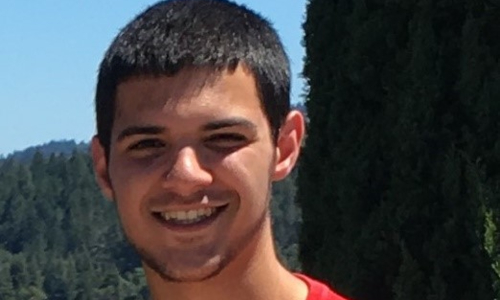
By the Miniati Family
Nick was a vivacious child and a charmer. He was always a balance between rugged and sensitive; shy and intense; carefree and caring.
He grew up surrounded by his family, making memories with his brother, cousins, and friends whether it was playing games in the backyard, golfing, fishing, kayaking, visiting the White Mountains of New Hampshire, Chatham, the Caribbean or trips to Disney World, where he went more times than he could count!
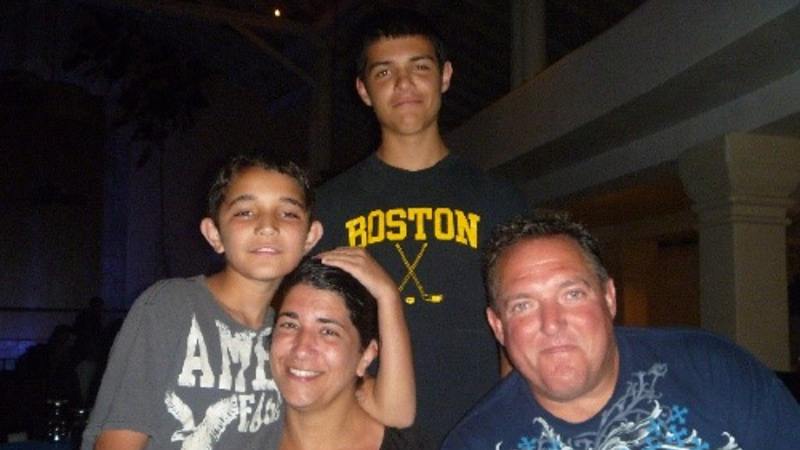
Nick kept the people he liked close and was fiercely loyal to his family and friends. He was always there to lend a helping hand, watch sports, or just hang out.
Some of his earliest and closest friendships came from hockey, which was his passion from the first time he put on a pair of skates.
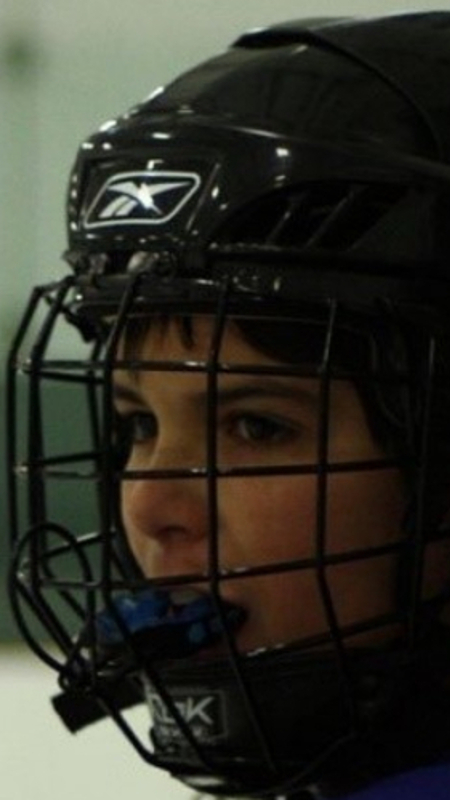
When he looked in the stands, he always saw his mom there and often other family members cheering him on. He could always find his dad watching rink side, near the goalie net because he wanted the best view of Nick when he scored a goal!
Nick carried with him his father’s voice booming: “Skate hard!
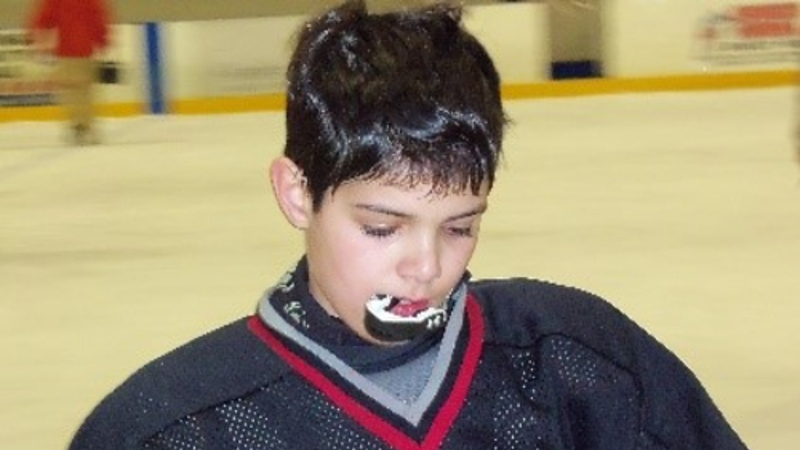
Nick played with grit and determination. He was never afraid to go up against larger opponents and battle it out in the corners. In early adolescence, he suffered two significant concussions that we sought treatment for.
But the extent of Nick’s head trauma was not limited to those two diagnosed concussions. Later in life, Nick revealed to his family how he had his “bell rung” more times than he could remember. He never considered these incidents as concussions or told us about them when they happened.
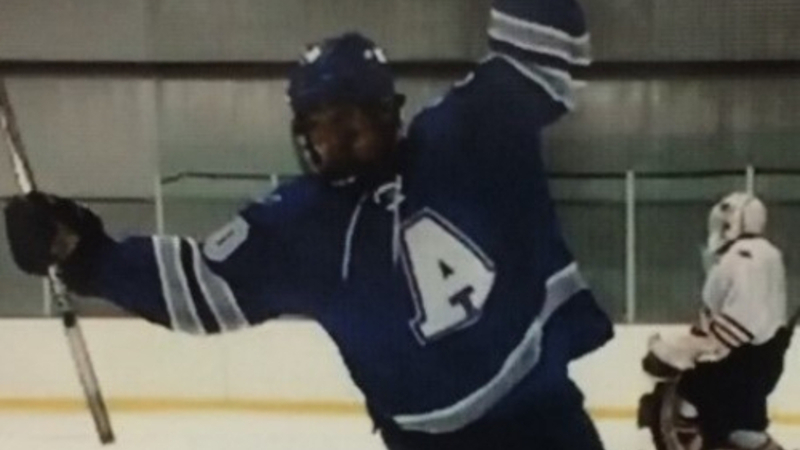
Nick hid the physical and emotional pain he was in from others. His friends never knew what he was going through and, initially, neither did we. But his suffering began to manifest in ways we could pick up on.
We noticed he had immense difficulty sleeping and was plagued by waves of headaches. He didn’t tell us when his head bothered him, but we could tell he was in pain when he had to step away from TV or video games.
His mental health also declined as he entered his early 20’s. He had mood swings. He lost his motivation and his sense of drive. He began to isolate from others and showed signs of depression.
Nick was seeing a family doctor and began seeing a therapist. There was reason for optimism from how the sessions were going. But even after seeking help, we still saw Nick suffer from many of the same problems.
On September 7, 2020, Nick died by suicide at the age of 22.
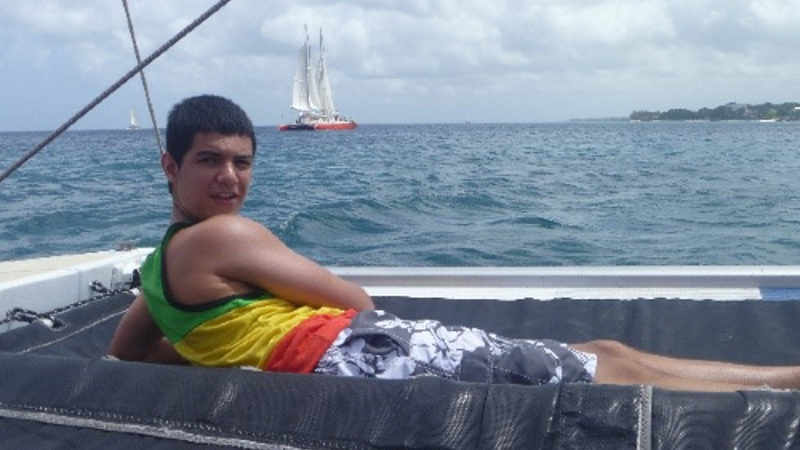
Upon Nick’s death, we donated his brain to the VA-BU-CLF Brain Bank. There, researchers found Nick did not have CTE, but said he could have eventually developed the disease later in life. Researchers also reported Nick had damage to his frontal lobe, and had brain bleeds deep inside his brain. They noted those types of brain bleeds were greater than expected for his age and may be related to his repetitive head impacts.
Our goal in sharing his story is to highlight the connection between brain trauma and suicide. A 2018 study published in the Journal of the American Medical Association found those who were diagnosed with concussion or mild TBI were twice as likely to die by suicide than those who had not been diagnosed with a concussion or mild TBI. A 2019 study from the University of Texas Health Science Center at Houston found teenagers with a history of concussions reported having thoughts of suicide and feeling sad or hopeless at higher rates than teenagers without a history of concussions. The more educated players, coaches, and parents can be about the signs and symptoms of concussion, the safer our kids can be. If you notice a change in behavior on or off the ice, speak up!
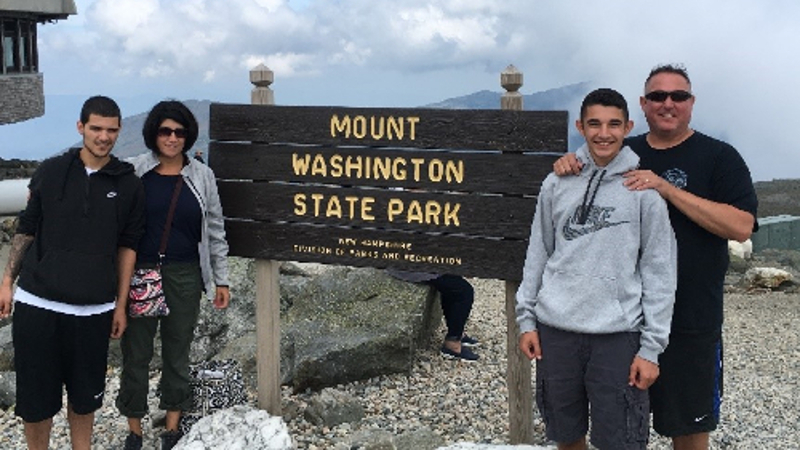
Something happened in Nick’s brain that we do not fully understand. But with more research like the work being done at the VA-BU-CLF Brain Bank, we hope to prevent another family from going through the unbearable pain of losing a child.
Suicide is preventable and help is available. If you are concerned that someone in your life may be suicidal, the five #BeThe1To steps are simple actions anyone can take to help someone in crisis. If you are struggling to cope and would like some emotional support, call the National Suicide Prevention Lifeline at 1-800-273-8255 to connect with a trained counselor. It’s free, confidential, and available to everyone in the United States. You do not have to be suicidal to call.
Are you or someone you know struggling with lingering concussion symptoms? We support patients and families through the CLF HelpLine, providing personalized help to those struggling with the outcomes of brain injury. Submit your request today and a dedicated member of the Concussion Legacy Foundation team will be happy to assist you. Click here to support the CLF HelpLine.
Suicide Prevention Resources

Nobody should have to go through a crisis alone. Dial 9-8-8 if you or a loved one is in crisis or suicidal.
Suicide Prevention Lifeline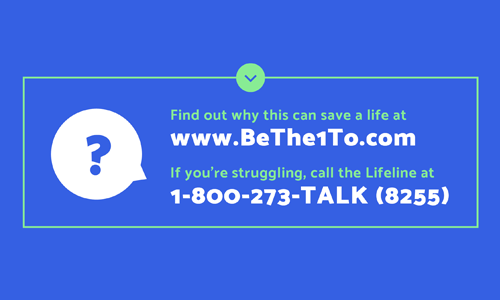
We can all play a role in preventing suicide. Learn the five steps to help you #BeThe1To support someone in crisis.
#BeThe1To Resources